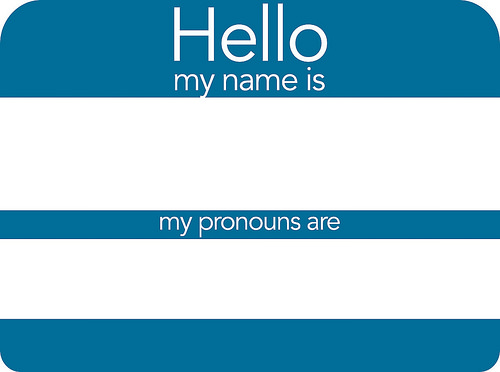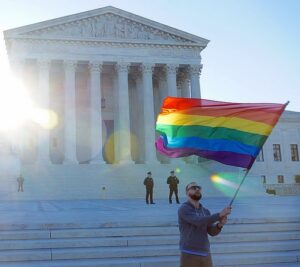Earlier this year, a court in Oregon let a person legally change their gender to “non-binary.†It’s fantastic that the law acknowledges that there’s more to gender than merely male or female.

As I thought about this ruling, I began to reflect on my upbringing. When I was growing up, children were classified as a “boy†or a “girl†based on their genitalia. By the time I was in preschool, I understood that boys and girls were told to use different bathrooms, play with different toys, and wear different clothes. As I got older, I learned that some people are homosexual and bisexual. I also learned that some people are transgender, meaning that they were born in the wrong body, and probably wanted a sex change; and some people are intersex, meaning they have both male and female genitalia. In all these situations, gender was represented as a binary characteristic.
I wondered, if I grew up in a culture that acknowledged gender as a spectrum, would I self-identify as non-binary. I’ve never fit in with the “girly girls†in school, and I didn’t want to be like them. In fact, I got in trouble when I was nine because I refused to talk to most of the girls in my class because I thought they were annoying. I find it delightfully ironic that I was a gymnast – a sport that is so inherently feminine and has drastic differences in men’s and women’s events. It’s also fierce as hell which is why I love it so much. I asked my teammates, who I spent years with, seeing each other at our best and our worst during our tween and teen years, to describe me. Some of their descriptors were “strong,†“powerful,†“determined,†“focused,†and “true to yourself.†I definitely wasn’t one of the balletic athletes in the gym.
Learning about this ruling made me the question my gender identity. I have no issues with being biologically female except that I think tits are overrated, and I would have an ablation in a heartbeat if it came with a guarantee. I have no desire to have a penis. If pushed to declare which pronouns I want, I can see myself choosing he/her – don’t ask me why, and, to be honest, I really don’t care what pronouns you use for me as long as you use them respectfully. As a model, I prefer poses and looks that are somewhat androgynous and portray me as strong – or at least possessing an inner strength.
I shared some of my thoughts about questioning my gender with my friends, and it was comforting to hear that I’m not the only one who doesn’t fit in a stereotypical box. Some are agender. Some have biologically male parts, no desire to change that, but feel they are more feminine in terms of their personality. The best response I got was from a friend who says she doesn’t identify as a “lady†or a “man,†but rather an engineer, an inventor, a housewife, an athlete, a seamstress, and a parent. I think she’s right in that what we do is more important than which bathroom we use or which gender box we check.
If you’re questioning your gender identity and/or gender expression, you’re not alone. We may not talk about it much, but a lot of us don’t feel like we fit into the male/female binary. You don’t have to decide on a label for yourself today and if you select a designation for yourself, you’re not stuck with it for forever. For me, for now, I’m content to classify myself as gender non-conforming and continue to be open to further self-exploration and experiences.


